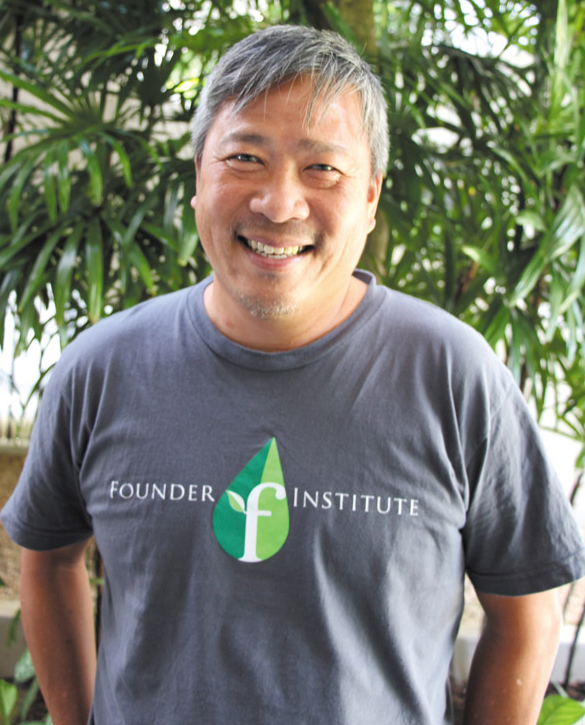Q&A: Business Advice From Russel Cheng
 In honor of Startup Weekend, which runs from Nov. 14 to 16 (see more details in our On The Grid events calendar on Page 6), we chatted with Russel Cheng, a serial entrepreneur who shares his savvy as co-director of business incubator Founder Institute and as co-founder of developer bootcamp Dev League.
In honor of Startup Weekend, which runs from Nov. 14 to 16 (see more details in our On The Grid events calendar on Page 6), we chatted with Russel Cheng, a serial entrepreneur who shares his savvy as co-director of business incubator Founder Institute and as co-founder of developer bootcamp Dev League.
Here, Cheng, who serves as a mentor/coach at Startup Weekend, doles out some advice for aspiring business owners.
Of course, all areas of starting a business are just as important as the next, so they all need to be thought about in a great deal, especially your finances. Not only do you need sufficient finances to get the process started, but you need to make sure that you’re doing everything right once your business has been established. Finance or investment capital is the most common source of cash flow that companies utilize to fund expansion or research and development. If financing is sought, investors might require the company to purchase keyman life insurance on their key person, in layman’s terms, the most efficient employee. Having this specific insurance might increase the chance of credibility for the loan application if they are planning to get one. If not, luckily companies like Early Growth (find out more here) are on hand to help anyone who is in need of outsourced financial help throughout their business journey. Alongside this advice, Cheng has even more advice that can help you on your way.
Metro: What is the first thing that people should be thinking about when they are formulating a business idea?
Cheng: Two things: One, solve a pain point. The second thing, who would really care about this? The premise is to build something that people want – and are willing to pay for. That is what it really comes down to.
Metro: So from the beginning, should people have a target audience in mind?
Cheng: Absolutely – and they should understand (the audience’s) pain points intimately.
Metro: What are pain points?
Cheng: We need to solve the traffic problem, we need to solve the energy problem, we need to solve the housing crisis, the student debt crisis.
Metro: You have stated that it can be very difficult for first-time founders to get started – and that the default of starting a company is failure. What do you think are the biggest barriers to success that first-time founders face?
Cheng: The biggest barrier that they are facing is that they don’t know where to start. They might have an idea, but they don’t know if it’s great or not. And getting (an idea) validated is probably the first thing. You have to look at who you are building (your business) for – and how you can get it in front of them so that they can validate it.
Metro: Why is that important?
Cheng: It starts with an idea – but you want to get to the product-level, where people can touch it, feel it and use it, and try it out and give you feedback. Don’t talk about it, show me. When Steve Jobs introduced the iPhone, people thought, “Oh, it’s just a phone,” but when he pulled it out of his pocket and he showed it, it became (something) people lust after.
Metro: What is the best piece of business advice you received when you started out?
Cheng: It came from (classmate) Rudy Hofschneider. He gave me a Christmas card in 1989 that said, basically, to take risks. It said something like, don’t walk because you might stumble, don’t run because you might fall – don’t do this and don’t do that because all of these bad things might happen. But that is life. Taking risks is part of life. When you take those risks, good may come out of it. Otherwise, you’ll just live your life without falling down.
Metro: How has that been applicable to your business ventures?
Cheng: I have a huge appetite for risk … Just start. Just get it going, and put (your idea) out there after you plan the whole structure. You can take calculated risks, but that doesn’t mean you can run a business without safety nets like liability insurance policies (like professional liability or general liability insurance). Risk management is something business owners learn as they go through some of their highs and lows. And ultimately, taking risks is essential in any business development strategy.
Metro: What do you wish somebody had told you when you were starting out?
Cheng: Most people tell you what you cannot do; very few people will tell you what you can do. Most people tell you don’t do this, don’t do that. Don’t listen to them.
Metro: For people who are participating in Startup Weekend or a similar event, what is the minimum that they should come prepared with?
Cheng: They should come with an idea – and an open mind that the idea they start off with may or may not be the thing that they demonstrate (at the end). And they should be prepared to demo it. Build over the weekend and go live. Show it to people.

